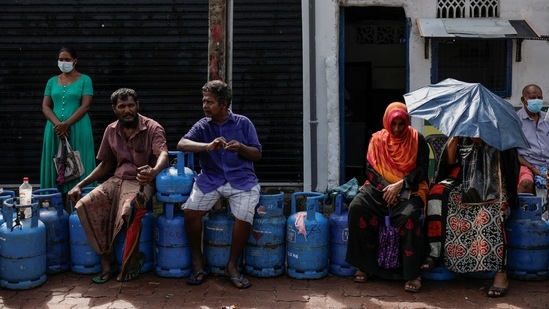Amid the crisis, what’s next for Sri Lanka’s economy
Now that Sri Lanka has appointed a legal and technical team to advise it on the debt-restructuring negotiations, progress can be made on talks with the IMF.
For the last month and a half, Sri Lankans have been peacefully protesting against President Gotabaya Rajapaksa, because Sri Lanka is in the midst of its worst economic crisis since independence in 1948. The island suffers from rolling blackouts, no petrol, depleted food stocks, and a shortage of medicines. Though President Rajapaksa has not resigned, his older brother, Prime Minister (PM) Mahinda Rajapaksa, stepped down to pave the way for a new government led by Ranil Wickremesinghe, who has previously served five times as PM.

Though the appointment of Wickremesinghe is unlikely to push protesters to drop their demands for President Rajapaksa to step down, these protests are unlikely to intensify, unless the situation deteriorates further. Wickremesinghe is not a popular politician (he only represents his party, the United National Party, in Parliament, and that too via the national list), he has championed close ties with India and the West before, and has also been involved in negotiations with the International Monetary Fund (IMF). Wickremesinghe was PM in 2016 when Sri Lanka last successfully negotiated an IMF programme. These relationships should help, especially as the Rajapaksas had alienated the United States (US) and Japan, two key countries to watch in the upcoming IMF negotiations.
Despite defaulting on loan repayments for the first time since independence, little progress has been made by Sri Lanka in obtaining debt relief. At the IMF, Sri Lanka has requested a Rapid Finance Instrument (RFI), which is an emergency loan that comes with no pre-conditions, unlike a full IMF programme. However, the IMF has reiterated that Sri Lanka’s debt is unsustainable, and that there needs to be progress on moving towards debt sustainability before money can be made available to the country.
Now that Sri Lanka has appointed a legal and technical team to advise it on the debt-restructuring negotiations, progress can be made on talks with the IMF. The successful conclusion of discussions with the IMF will also allow Sri Lanka to unlock additional multilateral funding; Sri Lanka estimates that it will need at least $3-4 billion in additional financing this year.
A group representing Sri Lanka’s creditors has been formed in anticipation of the negotiations, and is working under the assumption that Sri Lanka will eventually participate in an IMF programme. However, negotiations with the IMF over a potential programme are likely to take several months. There first needs to be a staff-level agreement, then parliamentary approval in Sri Lanka, followed by approval by the IMF’s executive board. Here is where the US and Japan will have a crucial role, as their votes will be required for the agreement to be approved.
The IMF programme is likely to focus on a few key issues.
First, Sri Lanka will likely need to roll back the 2019 value-added tax and income tax cuts, which the IMF estimates caused over 2% of Gross Domestic Product (GDP) loss in revenue.
Second, Sri Lanka will need to continue to move towards allowing the market to decide fuel prices.
Third, Sri Lanka will have to reform or even privatise State-owned enterprises (SOEs), as the three main SOEs Ceylon Petroleum Corporation, Ceylon Electricity Board, and Sri Lankan Airlines, are a massive drain on the treasury.
The IMF is also likely to push Sri Lanka to cap defence spending at a certain percentage of GDP. In the 2022 budget, direct military expenditure was estimated to be about 12.3% of the total government expenditure, a staggering amount for Sri Lanka. As a percentage of GDP, Sri Lanka spends about 1.93% on military expenses, which is on par with Australia. This needs to be cut, and India should encourage Sri Lanka to decrease this expenditure to less than 1% of GDP. Doing so will also signal to the US and the IMF that Sri Lanka is committed to fiscal consolidation.
The IMF programme is just one part of the solution to Sri Lanka’s problems; the negotiations with creditors on debt restructuring will be another part of the solution. Those negotiations will not be easy either. Creditors are likely to look at how China is treated, and whether or not China takes a haircut as well. So far, China has been unwilling to engage in debt restructuring negotiations with other countries, instead of offering to refinance existing debt.
Sri Lanka faces a painful few months, and the economic crisis will not abate any time soon. Painful decisions will have to be made with regards to the IMF programme, and Sri Lanka is likely to face a period of austerity. Though Wickremesinghe has taken initial steps to be honest with the public about how bad the situation is, the conditions of the IMF programme could result in increased political volatility and more protests. Even if the IMF programme is successful, Sri Lanka needs to shed the economy’s many socialist-era hangovers and reform the economy to become more open and globally integrated.
Akhil Bery is director, South Asia Initiatives, Asia Society Policy Institute
The views expressed are personal
Continue reading with HT Premium Subscription




